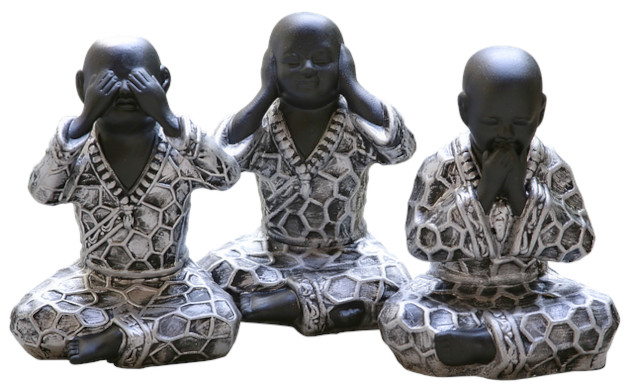In this Article:
- How does karma influence justice?
- What role does collective karma play in shaping society?
- Can we change our karmic contributions?
- Are fairness and justice just illusions?
- How does spiritual responsibility tie into karma and justice?
Collective Karma and Justice: How Do We Fit In?
by Peter Coyote.
We want the world to make sense to us. We would like it to be fair and just. We want those we perceive as violators of norms and laws to be punished, and those we perceive as good, rewarded. Often, we can manifest very little control over issues we perceive as problematic or immoral.
I receive a lot of questions about karma and justice these days. Right now in our country and every country on Earth many cruel, unfair, and unjust events are unfolding. The Universe offers us an infinity of everything. Everything is always available. There is an infinity of kindness, cruelty, betrayal, compassion, suffering, exaltation—all manifestations of the pregnant turmoil energy of the Universe.
A Nation’s Historical Accumulation of Karma
Our current state might be regarded as the karmic accumulation of a nation historically and presently consumed by the acquisition of material wealth. This has organized most of its past actions and decisions, from Imperialism to the Supreme Court’s assertion that political contributions are the equivalent of free speech.
There are days when I feel that our fixation on material wealth has used up the near-total of our mental bandwidth. Whatever space is available for spiritual growth is the space required to question our dominant political paradigm. It is by that slender thread that the fate of democracy is suspended.
What’s Keeping Me Awake at Night
After a lifetime of political involvement, my antennae are currently tweaked by a disturbing thought, which might account for the Republican Party’s descent into unprincipled lawlessness and gas-lighting. What’s keeping me awake nights is considering whether or not Republican defectors from democracy might be receiving quiet signals from their donors in the C-Suites and billionaire class.
The corporate sector may well have concluded that the regulations safeguarding our environment and workers (clean air, clean water, worker safety, food safety standards, product liability) extract costs affecting their profit margins.They may have calculated that they and their shareholders can be richer if Donald Trump wins the 2024 election.
I hope that’s not the case, and it seems more reasonable that the rightward shift of public policy since Ronald Reagan has disappointed and deprived enough voters that they have lost faith in government itself. This has for a long time been the goal of Conservatives and other supporters of neoliberal economic policies, who believe that nothing should be allowed to limit or restrict markets.
Given enough time and close observation, patterns become visible that make it obvious that, in many cases, the well-being of the citizens has not been left to the honorable statistics of chance but are the results of strategic planning and collusion among people who would just as soon dismantle our country to sell as spare parts rather than contribute to a thriving, equitable democracy.
Fair and Unfair
Let’s regard fair and unfair. Since the Middle Ages gave way to the European Enlightenment and the industrialization that accompanied it, people have learned how money was accumulated. Wealth was not the “divine right” of a certain class but involved buying and selling and interest and acquisition.
We learned that poor people are not poor because they behaved badly in a former life or because they are inherently lazy or stupid. Neither are the rich privileged because they lived nobly and selflessly in a prior time.
When a fox eats a rabbit, is it fair or unfair? When one set of people oppresses another, it doesn’t matter what our ideas about it are, the results are similar. This does not mean that we have to accept animal behavior as the “natural” standard of humans as some apologists for unregulated capitalism suggested during the 1970s, arguing that capitalism should not be blamed for its flaws, because it was a natural expression of survival of the fittest, emulating the procedures of the Universe.
It’s twaddle, of course. What distinguishes humans from the animal world, among other things, is our ability to control our instincts and behaviors that do not serve us.
Survival of the fittest as an economic theory was a philosophy guaranteed to please Wall Street and hedge-fund speculators but did not do much for the 99.9 percent of souls on Earth hauling the water, setting the bricks, or working in the Post Office.
We are all on this Earth together. We are all playing roles consciously or unconsciously, interacting with one another, inventing our parts as we go within ancient, inherited scenarios that were designed by humans and can be redesigned by them.
Every conceivable human intention is being expressed on the human bandwidth simultaneously, which includes Mother Teresa, Nelson Mandela, Jesus, Ted Bundy, Donald Trump, and Hitler—every possibility of the human mind—and it’s foolish to think that because we don’t see it operating in our neighborhoods or living rooms that we are somehow immune to humanity’s darker intentions.
Recall Karl Marx’s surplus value theory of profit, which amasses wealth very rapidly, especially when you have thousands of employees. When I was working in Hollywood and visited the homes of agents who commission their clients 10 percent of each job, I was flabbergasted at the wealth on display—grand homes, Warhols and expensive art adorned their walls, expensive furniture, multiple assistants served and ran the house—all because of this snip from hundreds of clients.
Another Kind of Human Delusion
Our expectation that the Universe will correspond to our ideas of justice is another kind of human delusion. I heard a podcast on NY Times Daily by a fellow who was charting human migrations due to climate change. It turns out that currently tens of millions of people are preparing to migrate because they can see the writing on the global warming wall. They are either going to be underwater or without water, or in a place where they can’t grow crops, or where it’s too hot to work outside. They’re not going to be able to live as they always have.
Those of us in the developed nations, with the time to read books like this, are turning the planet into a fireball by refusing to limit our indulgences in consideration of the rest of humanity. The planet is demonstrating that we are living out of balance—taking more from the planet than it can sustainably give.
Today, moderating our personal climates with air-conditioning, importing lobster and fresh fruit by jet planes in every season, or hopping on the same carbon-spewing jets for “environmental vacations” is considered “taste,” “lifestyle” or “sophistication.” If we do not alter our personal habits, who will?
It’s the developed nations creating the markets clearing the rainforests for palm oil in our skin creams or cattle for our hamburgers; snapping up the last vestiges of fish and by-catch Hoovered from the ocean with enormous nets that destroy the coral reefs, where tomorrow’s fish might have grown.
The result is the same in every quadrant of society—there are no viable public discussions of limiting oil, driving, cattle breeding, or the production of a new plastic to draw down the carbon our culture emits into the atmosphere and which is killing tomorrow.
The poor cannot be blamed for wanting to survive, and when most of the world’s population is living on a dollar a day or less, it will have to be the First World, industrialized nations who must learn to live on less.
Modifying How We Live
The existential threat of global warming to civilization will not be deterred unless we modify how we live; unless government begins to set strict standards to protect the planet, and unless people develop the trust to believe that those standards are necessary. The question remains whether or not that can happen in a political system which revolves around money.
The hoarders and investors in catastrophe may discover short-term escapes for a decade or so, but my seventeen-year-old granddaughter is going to live as an adult in a world with 35 percent less oxygen, because the plankton in the ocean (which outstrips even the rain forests as a generator of oxygen) are disappearing due to warming and acidity. If she continues to live in San Mateo, California, in thirty years it will be like living at 12,000 feet above sea level.
So I have to wonder: When does our culture begin to consider global warming as the existential emergency it actually is? When do we take disciplined, conscious action to make our governments respond? We’re in it, whether we want to be or not. We’re in it, whether we change all our lightbulbs to LED, install solar panels, and drive electric cars. We’re in it.
The Collective Karma of a "Me" Culture
It’s the collective karma of a “me” culture, of wanting “to be all we can be” without ever realizing we are already more than we can possibly imagine ourselves being. Consequently, it would be to the benefit of everyone if we paused to take a hard-eyed, deadly serious inventory distinguishing needs from wants before we shopped again.
Not to make light of small individual steps to consume less, butthe problems facing us require systemic-scale alterations to our power grid, transportation models, commuting, addiction to daily meat, and a host of other items.It means that it is critical to vet the people we elect; to demand their positions on these items, which are no longer radical but may well be emergency, life-saving policies.
I’m not exempting myself from these observations. I live alone in a 1,700-square-foot home, which would house ten people in a less-developed country. I’ve done all the lightbulb changing, solar panels, no air-conditioning, and electric vehicle Band-Aids, but it’s not nearly enough to make a difference.
Most Americans are not aware that recycling has basically ended since China began refusing our garbage.From all the plastic-wrapped goods we’re forced to buy, from the single-use plastic bags and clam-shell containers for berries, to the see-through garment bags we receive from the dry cleaners—is the culture we grew up with. It’s our normal.
I understand how irritating it can be to be constantly reminded of negative aspects of our daily life, but unless each of us assumes some responsibility for manifesting the changes we want, they will continue.
We are being called upon by Nature herself to change our “normal,” to change our expectations if we want to survive. Because we know nothing else, the change looms overlarge and frightening, but we are a clever, resourceful species, and there is nothing in changing the model that dictates that we live in squalor or without regard for beauty.
Extraction and Consumption
Writ large, the issue is extraction and consumption to ensure human ease and comfort. This is a spiritual problem. For beings who are the Universe itself, what do they not already possess? There is need, and then there is greed, and spirituality helps us to know the difference.
My argument is simple, that as a nation we have become addicted to riches and maintaining the highest status. Every addict understands that behind their addiction is a lot of “stinkin’ thinkin’” and the insistence of guilt and shame, which they will go to any lengths to suppress.
We have the full potential of human beings inside of us, positive and negative, and when our attention lapses, we can be quite dangerous. I try to remind myself that I am often the problem I am trying to solve.
We all tend to forget that each and every human represents the full spectrum of thoughts, feelings, impulses, sensations, and consciousness to which the species is heir. There are no good guys. Evil is the opposite pole of good, and neither exists as an absolutely identifiable, stand-alone quality.
For good we could substitute generous, empathic, and nurturing, and for evil we might substitute ruthless, amoral, or sadistic—all words that describe identifiable behaviors. Good and evil, however, suggest fixed, permanent states that we assume are always identifiable, but if that were the case, people might not be repeatedly sending delegates who vote against their interests back to Congress.
We Have a Responsibility
If we intend to survive as a species, we are going to be required to make big changes in the number of calories of energy we use per person, regardless of the short-term economic consequences. This will probably require re-allocating the spending of tax dollars to pay for the programs and retooling required. It will no longer work simply as a mechanism for rewarding the wealthy and leaving what’s left to run the nation.
We have a responsibility to others and for the social inequities our system has created and fostered and by which many of us have been privileged.
Copyright 2024. All Rights Reserved.
Adapted with permission of the publisher,
Inner Traditions International.
Article Source:
BOOK: Zen in the Vernacular
Zen in the Vernacular: Things As It Is
by Peter Coyote.
 In this engaging guide to Zen Buddhism, award-winning actor, narrator, and Zen Buddhist priest Peter Coyote helps us peer beneath the Japanese gift-wrapping of Zen teachings to reveal the fundamental teachings of the Buddha and show how they can be applied to contemporary daily life.
In this engaging guide to Zen Buddhism, award-winning actor, narrator, and Zen Buddhist priest Peter Coyote helps us peer beneath the Japanese gift-wrapping of Zen teachings to reveal the fundamental teachings of the Buddha and show how they can be applied to contemporary daily life.
Revealing the practical usefulness of Buddhist philosophy and practice, Zen in the Vernacular shows how Zen offers a creative problem-solving mechanism and moral guide ideal for the stresses and problems of everyday life.
For more info and/or to order this book, click hereclick here. Also available as an Audiobook and as a Kindle edition.




 Peter Coyote is an award-winning actor, author, director, screenwriter, and narrator who has worked with some of the world’s most distinguished filmmakers. Recognized for his narration work, he narrated the PBS series The Pacific Century, for which he won an Emmy award, as well as eight Ken Burns documentaries, including The Roosevelts, for which he won a second Emmy.
Peter Coyote is an award-winning actor, author, director, screenwriter, and narrator who has worked with some of the world’s most distinguished filmmakers. Recognized for his narration work, he narrated the PBS series The Pacific Century, for which he won an Emmy award, as well as eight Ken Burns documentaries, including The Roosevelts, for which he won a second Emmy. 





















